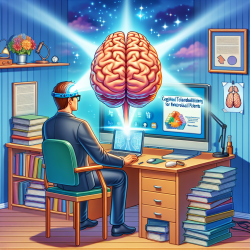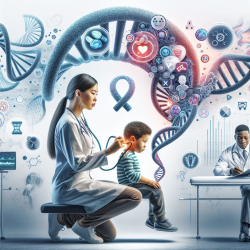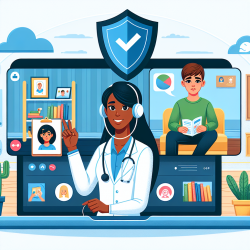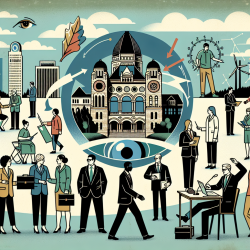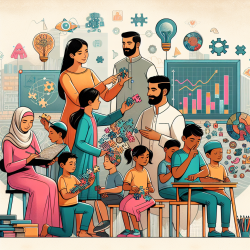The COVID-19 pandemic has fundamentally altered the landscape of psychotherapy, compelling many therapists to transition from in-person sessions to online therapy. This abrupt shift has presented various challenges, particularly in terms of emotional connectedness, which have had a significant impact on therapists' perceptions of online therapy's efficacy. The study "Psychotherapists’ Challenges With Online Therapy During COVID-19: Concerns About Connectedness Predict Therapists’ Negative View of Online Therapy and Its Perceived Efficacy Over Time" provides valuable insights into these challenges and offers guidance on how to address them.
According to the research, therapists faced four main types of challenges during the transition to online therapy:
- Emotional Connection: Difficulties in feeling connected with patients, reading emotions, and expressing or feeling empathy.
- Distraction: Increased risk of both therapist and patient distractions during sessions.
- Patients’ Privacy: Challenges related to maintaining confidentiality and ensuring patients have a private space for therapy.
- Therapists’ Boundaries: Issues with creating a professional workspace and setting boundaries.
Interestingly, the study found that older and more experienced therapists perceived fewer challenges in their online sessions. At the baseline, all four types of challenges were associated with lower perceived quality of the therapeutic relationship and more negative attitudes toward online therapy and its efficacy. However, after three months, perceived challenges in three domains—emotional connection, patients’ privacy, and therapists’ boundaries—significantly decreased, whereas challenges in the domain of distraction increased.
These findings highlight the importance of addressing emotional connectedness in online therapy. Therapists' concerns about being able to connect with patients online were the most impactful, predicting negative attitudes toward online therapy and its perceived efficacy three months later. To improve outcomes, therapists can take several steps:
- Enhance Emotional Connection: Utilize techniques such as active listening, maintaining eye contact through the camera, and verbalizing empathy to strengthen the emotional bond with patients.
- Minimize Distractions: Encourage both therapists and patients to find a quiet, private space for sessions and to minimize potential distractions, such as turning off notifications and other electronic devices.
- Ensure Privacy: Work with patients to find suitable and confidential spaces for their sessions, and use secure, encrypted platforms to maintain confidentiality.
- Set Professional Boundaries: Establish clear boundaries regarding session times and workspace to maintain professionalism and prevent burnout.
Furthermore, the study underscores the importance of training and first-hand experience in online therapy. Even under the stressful circumstances of a global pandemic, experiencing and overcoming initial challenges led to more positive attitudes toward online therapy and its efficacy. Thus, incorporating online therapy training into the curriculum for psychology trainees and providing ongoing professional development for practicing therapists can help mitigate initial concerns and improve outcomes.
To read the original research paper, please follow this link: Psychotherapists’ Challenges With Online Therapy During COVID-19: Concerns About Connectedness Predict Therapists’ Negative View of Online Therapy and Its Perceived Efficacy Over Time.




